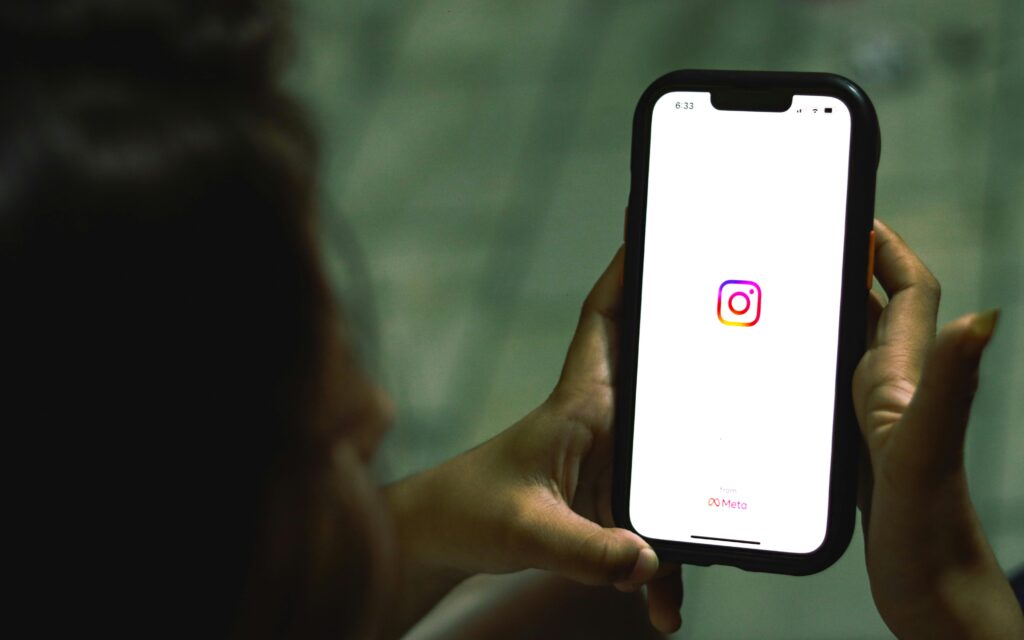Discover how to identify phone addiction with our comprehensive guide. Learn the signs, symptoms, and effective solutions to overcome smartphone dependency.
Did you know the average American adult spends 3 hours and 15 minutes on their phone daily? This shows phone addiction is a big problem. Many people find it hard to balance their digital and real-life interactions. In this guide, we’ll look at signs, symptoms, and ways to beat phone addiction.
Also see; Digital Detox: Practical Tips to Combat Phone Addiction Today
Key Takeaways
- Understand the definition and rise of phone addiction
- Recognize the signs of excessive smartphone usage and neglected responsibilities
- Identify the physical, emotional, and psychological symptoms of phone addiction
- Assess your own level of phone dependency and seek professional help if needed
- Discover effective strategies to set boundaries, develop healthy habits, and overcome smartphone addiction
Understanding Phone Addiction
In today’s world, we rely on smartphones more than ever. What started as a handy tool has turned into a compulsive habit, known as phone addiction. This issue is becoming a big problem, affecting our personal and work lives.
What is Phone Addiction?
Phone addiction, or smartphone dependency, is when we can’t stop using our phones. It’s a mix of psychological and physical factors. Using a phone releases dopamine, which makes us want to use it more.
The Rise of Smartphone Dependency
Smartphone addiction grew because phones are everywhere. We get constant updates and feel the need to check them. The addictive nature of mobile devices and their impact on our lives have made this addiction common.
Smartphones are now a big part of our lives. They give us access to information, communication, and fun. The psychology behind phone addiction is how our brains react to these devices. It makes us feel good and want to use them more.
So, why do we get addicted to phones? It’s because we want to stay connected, feel validated, and get instant satisfaction. Knowing what makes us dependent on smartphones is key to solving this problem.
Signs of Phone Addiction
Knowing the signs of phone addiction is the first step to break free. It shows in how much you use your phone and what you ignore. These signs can tell if you or someone you care about is addicted to their phone.
Excessive Usage and Neglected Responsibilities
One big sign is when you can’t stop using your phone, even when it gets in the way. Do you always check your phone, ignoring work, school, or home chores? This shows you might have a problem with phone use.
Withdrawal Symptoms and Cravings
Another sign is feeling bad or needing your phone too much when you can’t have it. Do you get anxious or upset without your phone? This shows you can’t control your phone use, even if it’s bad for you.
| Behavioral Indicators of Phone Addiction | Potential Consequences |
|---|---|
| Compulsive checking of devices | Neglecting work, school, or household responsibilities |
| Experiencing withdrawal symptoms when away from your phone | Strained relationships and social isolation |
| Inability to limit phone usage | Negative impact on physical and mental health |
By spotting these signs, you can start to control your phone use again. It’s all about being aware and wanting to change for the better.
Identify Phone Addiction
Recognizing phone addiction is a key step to control your digital habits. It’s important for you or someone you care about. There are many ways to check how much you rely on your phone.
Measure Your Screen Time
Most phones have tools to track how much time you spend on them. Look at how much time you spend on your phone each day. See which apps you use the most and when you usually check your phone. This info can help you see if you have a problem.
Take a Phone Addiction Quiz
- Online quizzes can show how dependent you are on your phone. They ask about compulsive checking and how phone use affects your life.
- These quizzes help you understand your level of addiction. They guide you on how to take back control.
Reflect on Your Behaviors
It’s also key to think about how you feel about your phone use. Ask yourself if you get anxious without your phone. Do you scroll through apps without thinking? Have you ignored important tasks because of your phone? Thinking deeply about these questions can reveal a lot about your addiction.
“The first step in overcoming any addiction is recognizing that you have a problem. By taking the time to honestly assess your phone usage, you can take the necessary steps towards breaking free from the grip of smartphone dependency.”
Symptoms of Smartphone Addiction
Using your smartphone too much can cause many physical and emotional problems. These issues can really affect your health. It’s important to know these signs to fight phone addiction.
Physical Symptoms
Looking at screens for a long time can hurt your eyes and give you headaches. The blue light from phones can mess with your sleep, causing insomnia. You might also get neck and back pain from always leaning over your phone.
Emotional and Psychological Symptoms
Phone addiction can also hurt your feelings and mind. It can make you feel anxious, depressed, and lonely. You might spend too much time on your phone and not enough with people. This can make you feel overwhelmed and less productive.
| Physical Symptoms | Emotional and Psychological Symptoms |
|---|---|
| Eyestrain and headaches Sleep disruption and insomnia Neck and back pain | Anxiety and depression Social isolation Decreased productivity |
Seeing these signs is the first step to fight phone addiction. It helps you take back control of your phone use. Knowing how phones can harm you lets you make better choices for your health.
Effects of Phone Addiction
Smartphone addiction can affect our lives in many ways. It impacts our mental health and disrupts our work-life balance. Understanding these effects is key to taking back control and improving our well-being.
Phone addiction can harm our mental health. It can lead to more anxiety, depression, and sleep problems. The need to check notifications constantly can make it hard to relax and disconnect.
It also messes with our work and personal life balance. Being always connected to work can cause burnout and lower productivity. It makes us feel overwhelmed.
- Impaired social relationships: Too much phone use can make us neglect face-to-face interactions. This weakens our personal connections and makes us feel isolated.
- Decreased academic and professional performance: Phones can distract us, making it hard to focus and complete tasks. This can hurt our school and work performance.
- Financial impact: Spending too much on phones can strain our finances. It can lead to higher costs for data, apps, and accessories.
| Consequence | Impact |
|---|---|
| Mental Health | Increased anxiety, depression, and sleep disturbances |
| Work-Life Balance | Blurred boundaries, burnout, and decreased productivity |
| Social Relationships | Neglected face-to-face interactions and feelings of isolation |
| Academic/Professional Performance | Impaired focus, concentration, and task completion |
| Financial Impact | Increased spending on data plans, mobile applications, and unnecessary accessories |
It’s important to tackle phone addiction to take back control of our lives. By understanding its effects, we can start to change our habits. This helps us find a better balance for personal growth and happiness.
Recognizing Phone Dependency
Do you find yourself constantly checking your phone, even when you should be focusing on other things? This could be a sign of phone addiction. Recognizing the signs is the first step to taking back control and developing better habits.
Self-Assessment Strategies
Start by tracking how much time you spend on your phone. Use tools to see how long you’re on it, what you’re doing, and how it affects your day. This helps you understand your habits and find ways to change them.
- Download apps that measure your daily and weekly screen time
- Keep a log of when and why you use your phone
- Assess how phone usage affects your productivity, sleep, and social interactions
Seeking Professional Help
If you find your phone use is a big problem, it’s time to get help. A mental health professional can give you a detailed look at your addiction and help you make a plan to overcome it. They can also help you understand why you’re addicted in the first place.
Also, joining a support group for phone addiction can be really helpful. It lets you connect with others who face the same issues. You can share experiences and get support from people who understand what you’re going through.
“The first step towards change is awareness. By recognizing the extent of your phone dependency, you can take the necessary steps to reclaim your time, attention, and overall well-being.”
| Technique | Description |
|---|---|
| Screen Time Tracking | Use built-in or third-party apps to monitor your daily and weekly phone usage, including time spent on specific apps. |
| Usage Logging | Manually keep a journal or log of when, where, and why you use your phone throughout the day. |
| Behavioral Assessment | Evaluate how your phone usage affects your productivity, sleep, social interactions, and overall well-being. |
Solutions for Phone Addiction
Beating phone addiction needs a mix of setting limits, building better habits, and balancing tech with real life. By using smart strategies, you can take back control of your phone use. This leads to a more rewarding life.
Setting Boundaries and Limits
Start by setting clear limits on your screen time. This might mean:
- Creating phone-free areas or times, like during meals or when sleeping.
- Using your phone’s built-in tools to track and limit your screen time.
- Deleting apps and turning off notifications that keep you hooked.
Developing Healthy Habits
It’s also key to build healthier phone habits. This includes:
- Trying new activities like reading or exercising to replace phone time.
- Practicing mindfulness to stay in the moment, not glued to your phone.
- Spending quality time with family and friends, away from screens.
By using these methods, you can cut down on phone use. This helps you find a healthy balance between tech and real life. You’ll overcome phone addiction and improve your digital health.
“The first step towards breaking any addiction is to recognize it and admit it. Once you acknowledge that you have a problem, you can begin to take the necessary steps to address it.”
Overcoming Smartphone Addiction
Breaking free from smartphone addiction needs a solid plan. Start by setting limits on how much you use your phone each day. Make a digital detox plan with tech-free breaks and phone-free areas at home.
Getting support is key. Tell your friends and family about your goals. Join online or local groups to find others who struggle too. Try new activities like exercise, mindfulness, and hobbies to replace phone time.
Keeping up the good work is essential. Keep an eye on how much you use your phone and change your habits if needed. Celebrate your wins and don’t get too hard on yourself. It’s a journey, not a quick fix. With effort and care, you can take back your life and enjoy the moment.
FAQ
What is phone addiction?
Phone addiction, also known as smartphone addiction, is when you use your mobile device too much. It can hurt other parts of your life. You might find it hard to stop using your phone, even when it’s bad for you.
How can I identify the signs of phone addiction?
Signs of phone addiction include spending too much time on your phone. You might ignore important tasks or feel bad when you can’t use it. Also, you might feel like you can’t stop checking your phone.
What are the symptoms of smartphone addiction?
Symptoms include physical problems like eye strain and headaches. You might also feel anxious, depressed, or lonely. It can mess up your sleep, make you less productive, and harm your relationships and money.
How can I assess my level of phone dependency?
To check if you’re addicted to your phone, track how much time you spend on it. Look for bad habits and see how it affects your life. If it’s a big problem, get help from a professional.
What are the effects of phone addiction?
Phone addiction can hurt your health and mind. It can mess up your sleep, cause eye and back pain, and make you feel anxious or depressed. It can also ruin your work, relationships, and money.
How can I recognize if I’m dependent on my phone?
Signs include always checking your phone and feeling uneasy without it. If you ignore important tasks for your phone or feel bad without it, you might be addicted. Tools and professional help can help you figure it out.
What are some solutions for overcoming phone addiction?
To beat phone addiction, set limits on your screen time and find better things to do. Try digital detoxes, mindfulness, and spending time with people. Getting support from friends or experts can also help.
How can I break my phone addiction?
To overcome phone addiction, set limits and find new activities. Leave your phone in another room during meals or at night. Seek support and be patient with yourself as you change your habits.



